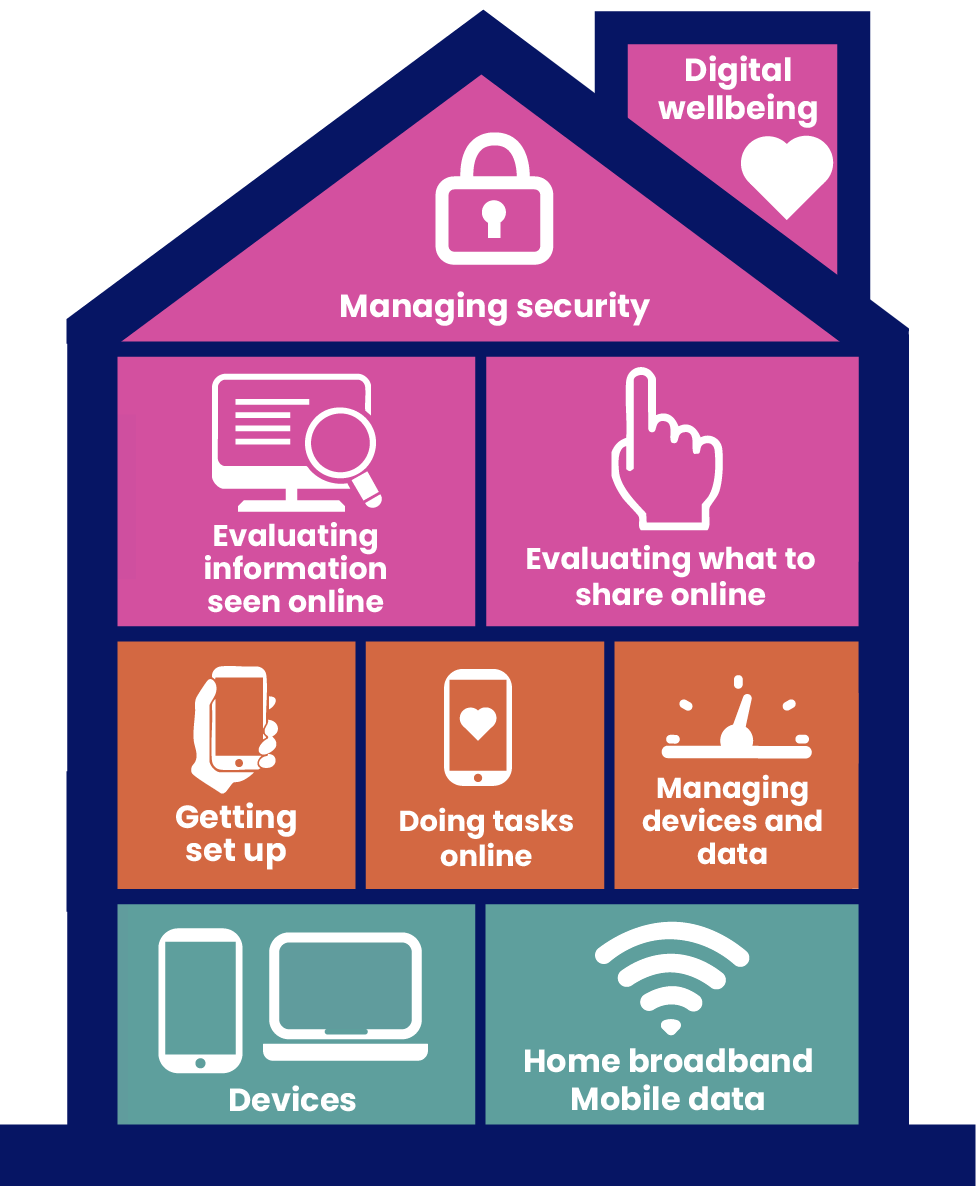About MDLS
Researching a Minimum Digital Living Standard
In March 2024 and June 2025, we published the full results for our project to define a Minimum Digital Living Standard (MDLS) for UK Households, asking the question:
“What is the minimum basket of digital goods, services, and skills that households need to live and participate in the digital world?”
The project addressed this question through a novel household-based assessment of digital need, drawing on the Minimum Income Standard (MIS) methodology to develop, through a series of deliberative focus groups with members of the public, a definition of MDLS that outlines what the standard should encompass. It also established a ‘minimum basket of digital goods, services, and skills’ that households need to meet this standard. This work covers all household types, including:
- Working-age households without children
- Retirement age household without children
- As well as a review of the definition for households with children.
Over the period, we have also separately reported on the use and relevance of the MDLS in both Wales and Scotland.


Researching a Minimum Digital Living Standard
As a team, we have continued our engagement with government, regional, public, and third-sector organisations to explore MDLS as a tool to inform policy development. The UK government now have a UK-wide Digital Inclusion Action Plan that both cites the MDLS and draws upon a range of research work by the team over the last decade.
The ongoing MDLS engagement work, along with the fieldwork for the Welsh and Scottish projects, has included in-depth group consultations with stakeholders (e.g. individuals and representatives from local and national public, private, and third-sector organisations) to explore the relevance of the standard concerning key dimensions of lived experience and intersectionality, such as disability, ethnicity, rurality, and poverty. Significantly, it has also involved focus groups with members of the public, interviews with stakeholders, and in-depth interviews with families.
Examining digital exclusion
The ongoing MDLS engagement work, along with the fieldwork for the Welsh and Scottish projects, has included in-depth group consultations with stakeholders (e.g., individuals and representatives from local and national public, private, and third-sector organisations) to explore the relevance of the standard concerning key dimensions of lived experience and intersectionality, such as disability, ethnicity, rurality, and poverty. Significantly, it has also involved focus groups with members of the public, interviews with stakeholders, and in-depth interviews with families.
The MDLS project examines an ongoing social issue that has become a key part of UK national, devolved, and regional government policy interventions: the risks and realities of digital exclusion. The scale and significance of digital systems and media in everyday life have never been more apparent. Significant practical barriers, such as a lack of infrastructure (e.g., broadband availability to households), are diminishing, and more individuals are gaining basic access to digital services (for example, through smartphone-only access). However, substantial survey work indicates that significant access issues and inequalities in use and skills persist across the UK. Our MDLS report on households with children found that 45% of households fell below the standard. Key issues, including poverty, household composition (e.g., being a single parent), and location significantly influence the ability to meet the standard.

Our MDLS report on households with children found that 45% of households fell below the standard, with key issues, including poverty, household composition, and location significantly influencing the ability to meet the standard.